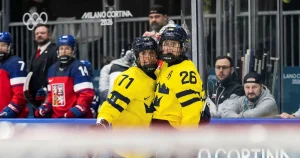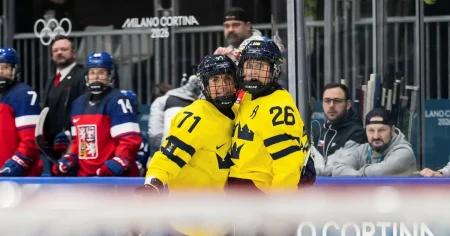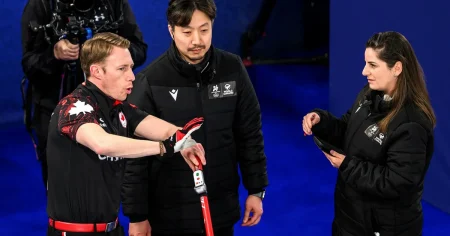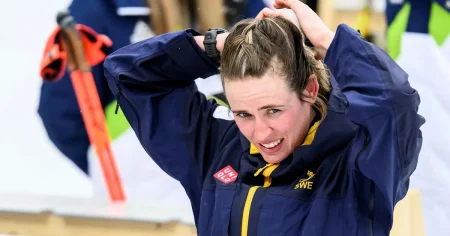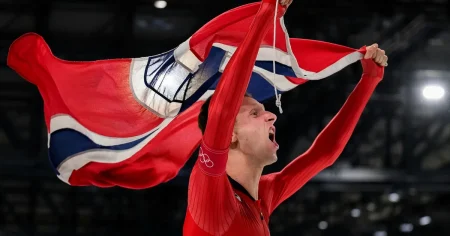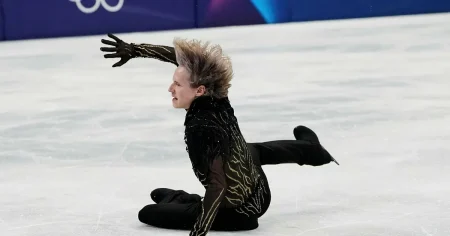Paragraph 1: The Initial Suspension and Retirement Announcement
Swedish tennis player Mikael Ymer faced a suspension from professional tennis due to his failure to comply with the World Anti-Doping Agency’s (WADA) "whereabouts" reporting requirements. These rules mandate that athletes provide detailed information about their location for one hour each day, enabling anti-doping authorities to conduct surprise drug tests. Ymer missed three of these mandatory reports within a 12-month period, triggering an automatic suspension. Coinciding with this disciplinary action, Ymer unexpectedly announced his retirement from professional tennis, a decision that shocked many within the sport given his relatively young age and promising career. The circumstances surrounding his retirement, coupled with the suspension, fueled speculation about a potential link between the two events.
Paragraph 2: Reversal of Retirement and Return to Competition
Despite the seemingly definitive retirement announcement, Ymer soon reconsidered his decision and expressed a desire to resume his tennis career. His suspension period ended, clearing the way for his return to competitive play. Choosing a relatively low-profile ITF tournament in Esch, Luxembourg, Ymer marked his comeback with a convincing victory against Markus Molder of Estonia. The match showcased Ymer’s retained skill and competitive fire, hinting at a potential resurgence in his career. The victory, while not against top-tier competition, provided a crucial confidence boost and marked a turning point in Ymer’s narrative.
Paragraph 3: Davis Cup Selection and National Representation
Following his successful return to competition in Luxembourg, Ymer received a significant vote of confidence from the Swedish Davis Cup team. He was selected to represent his country against Australia in a crucial tie to be held in Stockholm. This selection underscored the belief within Swedish tennis circles that Ymer, despite the recent controversy, remained a valuable asset to the national team. The Davis Cup stage, known for its passionate atmosphere and high-stakes matches, offered Ymer a platform to showcase his talent on a global scale and reaffirm his commitment to the sport. The upcoming tie against Australia presented a challenging but exciting opportunity for Ymer to contribute to his country’s success and solidify his place back within the professional tennis landscape.
Paragraph 4: The "Whereabouts" Rule and Athlete Responsibilities
The controversy surrounding Ymer’s suspension brought the WADA "whereabouts" rule into sharp focus. This rule, while designed to ensure the integrity of sport and deter doping, has been subject to criticism and debate. Athletes are required to meticulously log their location for one hour each day, including details such as address, training venue, or competition location. Failure to accurately provide this information, even due to seemingly minor oversights or logistical challenges, can result in sanctions. Proponents of the rule argue that it is essential for maintaining a level playing field and upholding the principles of fair competition. Critics, however, contend that the rule places an undue burden on athletes, infringing on their privacy and potentially leading to unjust penalties for administrative errors.
Paragraph 5: Ymer’s Career Trajectory and Ranking
Prior to the suspension and subsequent retirement announcement, Mikael Ymer had achieved a career-high ranking of 50th in the world. This ranking reflected his potential and established him as a rising star within the competitive world of men’s tennis. His powerful baseline game and aggressive style of play made him a formidable opponent. The suspension and break from competition undoubtedly disrupted his momentum and resulted in a drop in his ranking. His return to the court and participation in tournaments like the Davis Cup would be crucial in his efforts to regain lost ground and climb back up the rankings ladder. The road back to the top 50 would undoubtedly be challenging, but Ymer’s talent and determination suggested that it was a realistic goal.
Paragraph 6: Looking Ahead: Challenges and Opportunities
Mikael Ymer’s journey back into professional tennis is fraught with both challenges and opportunities. He faces the task of rebuilding his ranking, regaining his competitive edge, and managing the public perception following his suspension. The Davis Cup tie against Australia presents a high-pressure environment, offering both the chance to prove his doubters wrong and the risk of further setbacks. Beyond the Davis Cup, Ymer will need to carefully strategize his tournament schedule and focus on consistent performance to climb back up the rankings. His success will depend not only on his on-court abilities but also on his mental fortitude and ability to manage the pressures and expectations that come with competing at the highest level of professional tennis. The coming months will be crucial in determining whether Ymer can fulfill his potential and re-establish himself as a prominent force in the world of tennis.



